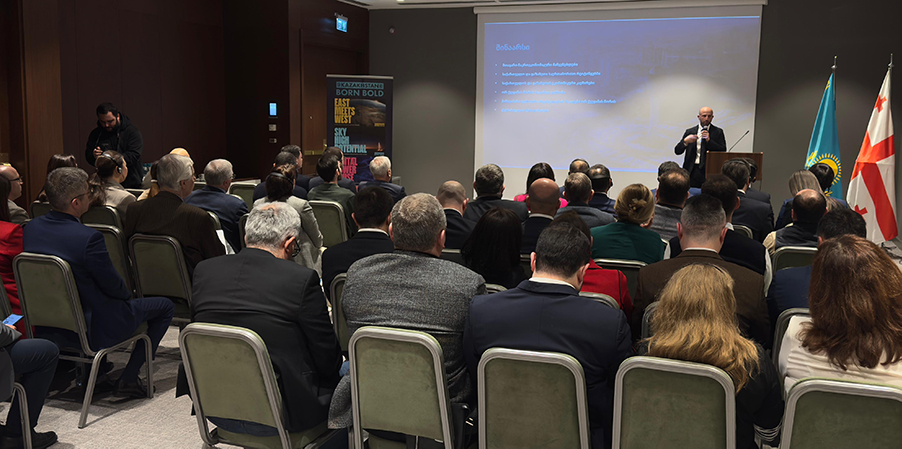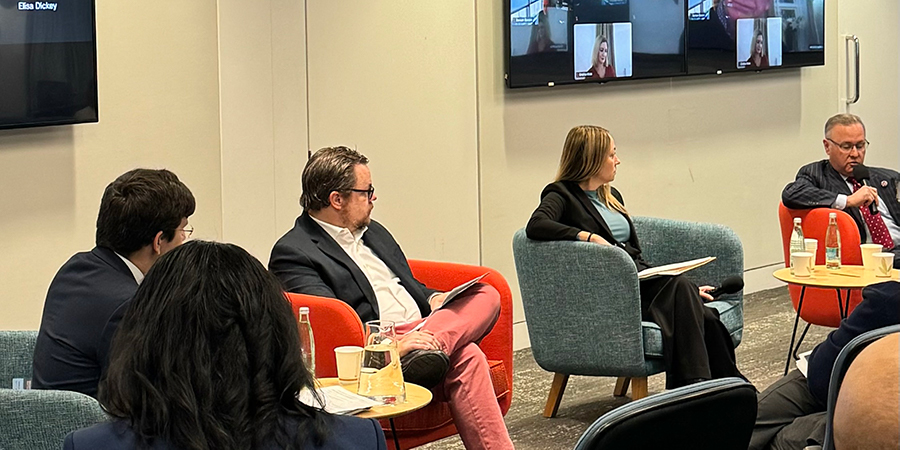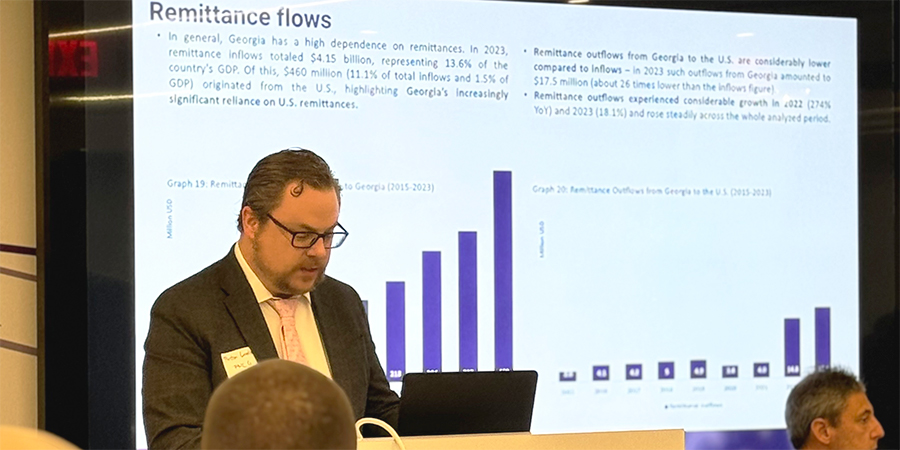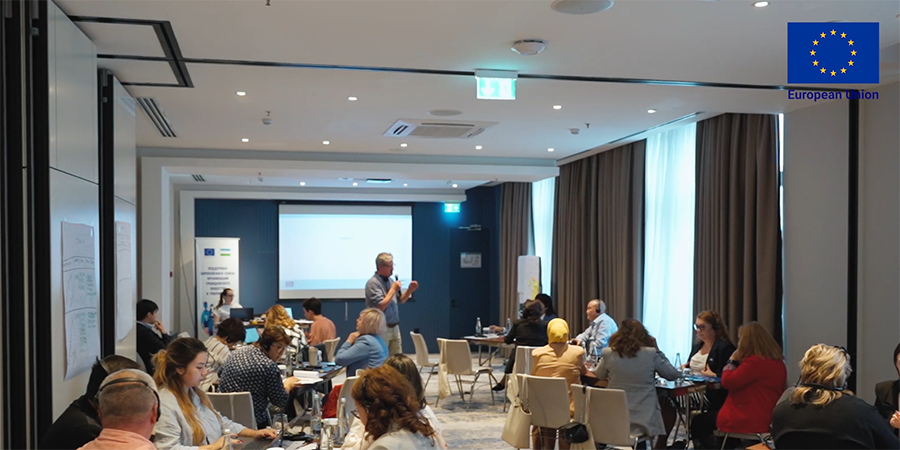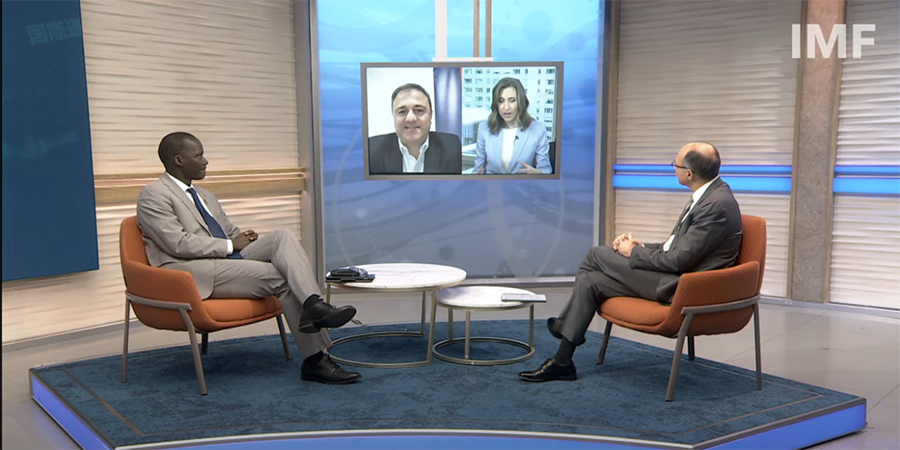Reform Prioritization Workshop for the ASEZA by the USAID Economic Reform Activity in Jordan
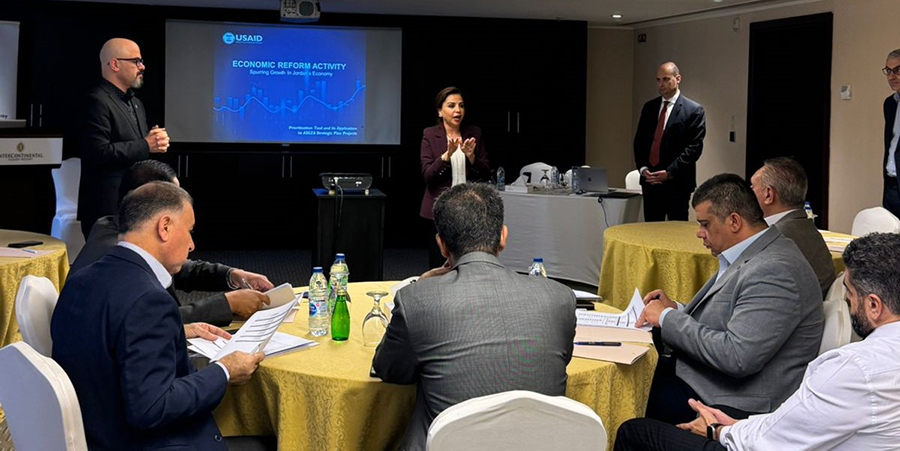
The USAID Economic Reform Activity team, tailored and applied the Prioritization Tool for the Aqaba Special Economic Zone Authority (ASEZA). PMCG’s international experts supported this effort to identify leading reforms and projects contributing to the achievement of a strategic development vision for Aqaba and Jordan.
As part of the activity, on December 15-19, a five-day capacity-building workshop was conducted in Aqaba, Jordan to train ASEZA top and middle management in the Prioritization Tool’s application and use.
Samah Nabulsi. Senior Technical Advisor at the USAID Activity, Mikheil Janelidze, Trade Sector Lead at PMCG, and Senior Economist Giorgi Papava led the sessions, training attendees on the use of different components of Prioritization Tool, encompassing a comprehensive survey tool and an analytical framework. As part of the activity, a user guidebook was developed.
In particular, trainees were guided through the tool’s functionality and taught how to apply it to evaluate projects efficiently. The workshop also covered the theoretical foundations underpinning the prioritization methodology, its practical application across various directorates, and backend operations, including how to generate prioritization results.
Prioritization Tool to Boost ASEZA’s Efficiency in Implementing High-impact Initiatives
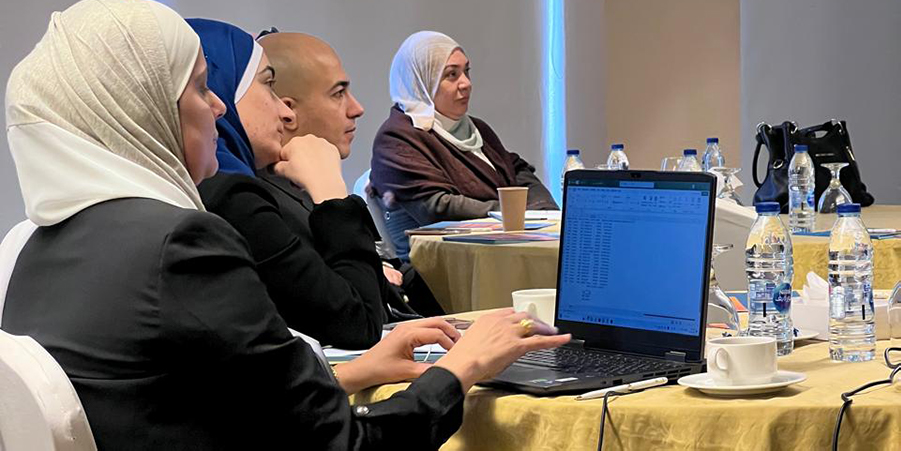
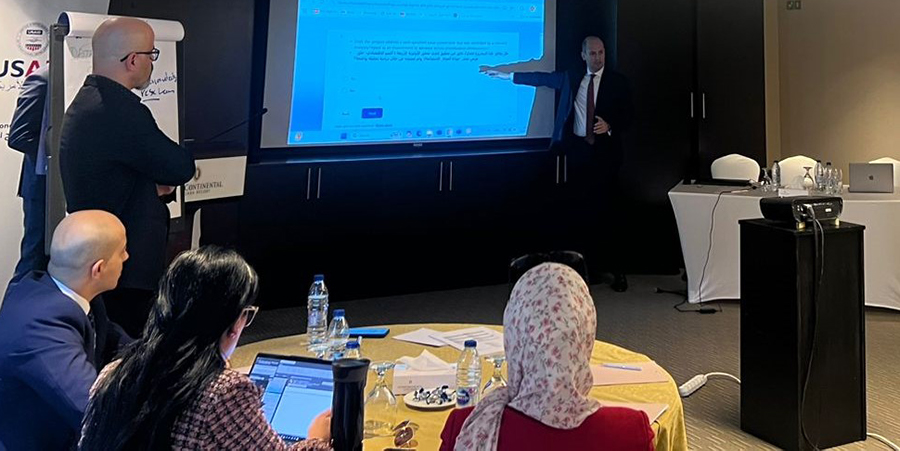
For the ASEZA’s strategic reforms/projects, the tool was initially applied so that the Government of Jordan (GoJ) could prioritize the initiatives of the Economic Modernization Vision (EMV) and has since been adapted to align with the vision and specific goals outlined in the ASEZA’s strategic plan. The Prioritization Tool represents a powerful resource allocation and strategic decision-making tool for ASEZA, enabling it to implement high-impact initiatives effectively.
Crucially, the Tool assesses projects based on two core axes: potential impact and implementation feasibility. First, for ASEZA, the impact score is based on measurements of the anticipated benefits of each reform/project in terms of economic growth, job creation, enhanced quality of life, and sustainability, which is in line with the EMV pillars and ASEZA’s strategic vision. Second, the feasibility score reflects an evaluation of the practicality of project execution, factoring in complexity and associated risks, also aligning with the risks stipulated in ASEZA’s strategic plan.
Such a multidimensional assessment enables ASEZA to pinpoint priority reforms/projects, as well as to optimize implementation efforts based on the current operational and strategic context.
This prioritization exercise was carried out in close collaboration with the ASEZA Delivery Unit, relied on valuable input from the directorates, and ensured that the methodology and priority assessment of individual projects fully reflects the ASEZA’s expertise and unique operational dynamics.
The USAID Economic Reform Activity supports the prioritization, implementation, and sustaining of reforms that will accelerate inclusive and sustainable economic growth. Moreover, it is helping to build a strong and stable business-enabling environment and bolsters the capacity of the GoJ and other institutions to lay the foundations for growth through increased exports and investment.
PMCG, as a subcontractor of Chemonics, is contributing to the strengthening of Jordan’s economy and reform initiatives within the GoJ through the USAID Economic Reform Activity.
